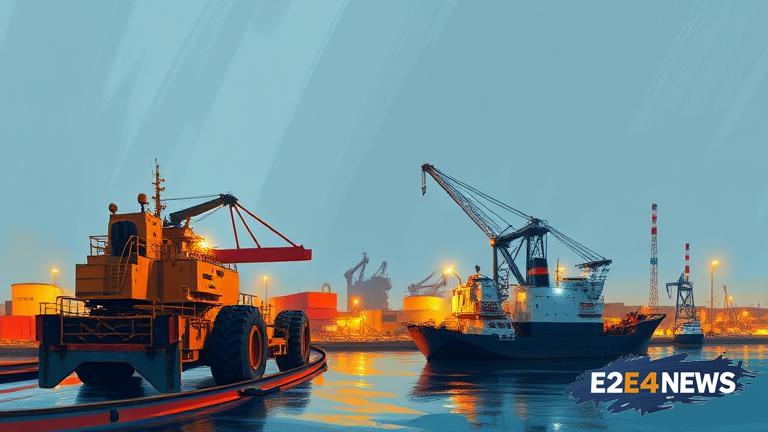The United States has recently imposed a 25% tariff on certain Indian goods, citing India’s decision to purchase oil from Russia as the primary reason. This move has sparked a heated debate, with many questioning whether the US is using trade as a tool to exert pressure on India. The US had previously warned India against buying oil from Russia, citing concerns over Russia’s actions in Ukraine. However, India has maintained that its decision to buy oil from Russia is driven by economic considerations, rather than political ones. The Indian government has argued that it needs to diversify its energy sources and that Russian oil is a cheaper alternative to other options. Despite this, the US has chosen to impose tariffs on Indian goods, including steel and aluminum products. The tariffs are expected to have a significant impact on Indian exporters, who will now have to pay a 25% duty on their goods when exporting to the US. The move has been seen as a blow to India’s economy, which is already struggling to recover from the COVID-19 pandemic. The Indian government has expressed its disappointment over the US decision, stating that it will hurt Indian businesses and consumers. The US, on the other hand, has maintained that the tariffs are necessary to protect American industries and jobs. The situation has sparked a diplomatic row between the two nations, with many calling for a resolution to the issue. The US has been pressuring India to reduce its dependence on Russian oil, but India has refused to budge. The Indian government has argued that it will not be dictated to by other nations and that it will make its own decisions on energy policy. The US has also been critical of India’s decision to buy the S-400 missile defense system from Russia, which it sees as a threat to its own defense interests. The situation has highlighted the complexities of the US-India relationship, which has been strained in recent years. Despite the tensions, both nations have expressed a desire to improve relations and to work together on issues such as trade and security. The US has been seeking to strengthen its ties with India, which it sees as a key partner in the region. However, the tariffs issue has created a new challenge for the relationship, which will need to be addressed in the coming months. The Indian government has stated that it will take all necessary steps to protect its interests and to ensure that its businesses are not unfairly affected by the tariffs. The US, on the other hand, has maintained that it will continue to press India to reduce its dependence on Russian oil and to comply with its sanctions. The situation remains fluid, with many uncertainties about how the issue will be resolved. One thing is certain, however: the tariffs issue has created a new challenge for the US-India relationship, which will need to be addressed through diplomatic efforts. The US and India have a long history of cooperation on trade and security issues, and it is hoped that they will be able to resolve their differences and move forward. The tariffs issue has also highlighted the need for India to diversify its trade relationships and to reduce its dependence on any one nation. The Indian government has stated that it will seek to strengthen its ties with other nations, including those in the EU and ASEAN. The situation has also sparked a debate about the role of trade in international relations, with many arguing that trade should not be used as a tool for political leverage. The US has been accused of using trade as a means of exerting pressure on other nations, which has sparked concerns about the impact on global trade. The World Trade Organization (WTO) has warned against the use of trade as a means of political leverage, stating that it can have a negative impact on global trade and economic growth. The situation remains complex, with many uncertainties about how the issue will be resolved. However, one thing is certain: the tariffs issue has created a new challenge for the US-India relationship, which will need to be addressed through diplomatic efforts.
